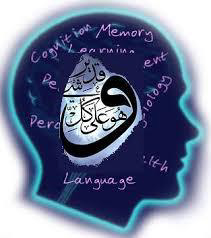
In the vast expanse of Islamic teachings and traditions, an often-underexplored facet is the holistic approach to health, encompassing both the physical and mental dimensions of human life. The erroneous belief that seeking guidance and treatment in matters of mental health signifies a lack of faith, or a deviation from the Islamic faith, is a misconception that needs careful and thorough clarification. This essay argues that, within the Islamic tradition, the pursuit of mental health and well-being, supported by scientific evidence and professional intervention, is not only permissible but encouraged, aligning with the broader Islamic principles of preserving life, seeking knowledge, and alleviating suffering.
The Islamic Perspective on Health: A Holistic View
At the heart of Islamic teachings is the profound understanding that human beings are composed of interdependent dimensions: physical, emotional, spiritual, and mental. The Holy Qur’an and the Prophetic traditions (Hadith) address humanity as a whole, urging the faithful to care for their bodies and minds with equal diligence. The Prophet Muhammad (peace be upon him) is reported to have said, “Take advantage of five before five: your youth before your old age, your health before your sickness, your wealth before your poverty, your free time before you become preoccupied, and your life before your death” (Tirmidhi). This profound narration encapsulates the essence of proactive care for one’s wellbeing, including mental health.
Mental Health: A Right, Not a Weakness
The stigma surrounding mental health in some Muslim communities, where psychological issues are often misunderstood or dismissed, contradicts the rich Islamic tradition of knowledge and healing. Islamic history is replete with scholars and clinicians, like Al-Razi (Rhazes) and Ibn Sina (Avicenna), who were pioneers in the field of medicine, including mental health. These scholars did not see a dichotomy between spiritual and physical healing; rather, they viewed them as complementary aspects of overall wellness.
The False Dilemma: Faith or Science?
A core misapprehension is the belief that seeking professional help for mental health issues implies a reliance on science over faith. This dichotomy is artificial and unfounded in Islamic teachings. Islam advocates for a balance between spiritual faith and the utilization of scientific advancements. Allah says in the Qur’an, “And We send down of the Qur’an that which is healing and mercy for the believers, but it does not increase the wrongdoers except in loss” (17:82). This verse, among others, highlights the Quran’s role as a spiritual guide and a source of solace, without negating the value of practical, worldly means of healing, including medicine and therapy.
Embracing Professional Help: An Islamic Directive
Just as it is recommended to seek expert consultation for a physical ailment, similarly, it is advised to consult mental health professionals for psychological issues. Drawing an analogy, if one suffers from a dental cavity, it is prudent to consult a dentist rather than relying solely on prayer for healing. In similar fashion, mental health matters should be addressed by qualified professionals. Utilizing these resources does not signify a lack of faith; rather, it exemplifies the Islamic ethos of taking responsible actions within the means Allah has provided.
Conclusion
The imperative to seek healing, be it physical or mental, is deeply embedded in Islamic tradition. Encouraging the pursuit of mental health and the destigmatization of mental illness within Muslim communities is not only aligned with Islamic teachings but is a necessary stride toward fulfilling the Islamic obligation of preserving life and health. Professional help in the form of psychiatry, psychology, and counseling complements spiritual practices and should be embraced as part of a comprehensive approach to wellbeing. The journey to mental health is one that encompasses faith, science, and the courage to seek help, embodying the true spirit of Islamic teachings on care, knowledge, and compassion.


